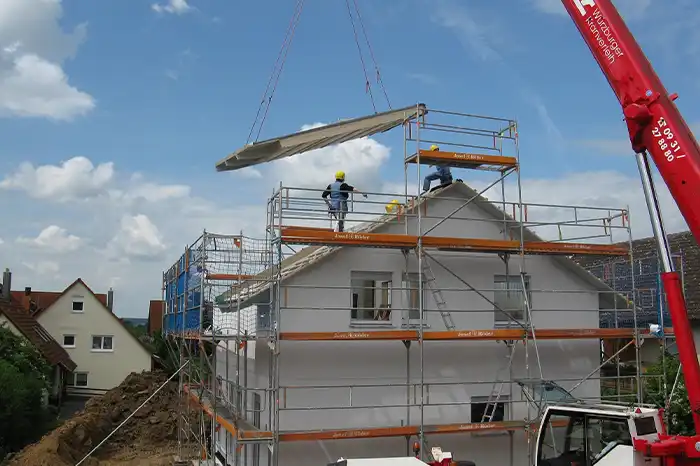Running a construction company in today’s rapidly evolving market environment requires innovation, strategy, and adaptability. The construction industry is not only competitive but also subject to fluctuations in economic conditions and technological advancements.
Essential Tips for Growing Your Construction Company
This article provides practical tips on managing a successful construction business while highlighting significant facts and trends from the industry.
1. Understanding Market Dynamics
The construction sector is vast and growing, with remarkable potential for commercial building projects worldwide. Estimates suggest that the global commercial construction market is projected to soar to $4.7 trillion by 2027. Understanding these market dynamics is crucial for construction companies aiming to sustain and scale their operations effectively.
Adapting to changes is vital as the industry transforms through innovations and consumer demands. Recognizing emerging trends, such as sustainability and smart buildings, can position your business at the forefront of the sector. Strategic partnerships and collaborations can also enhance your market position, providing a competitive edge.
Consistent market research will help businesses anticipate changes and develop proactive strategies. Interact with clients, suppliers, and industry experts regularly to gather insights. Maintaining flexibility in operations and decision-making can significantly contribute to business success in a fluctuating market.
2. Efficient Project Management

Managing projects efficiently is crucial to the success of any construction firm. Given that there were more than 919,000 construction establishments in the U.S. in early 2023, competition is fierce. Effective project management ensures that deadlines are met, resources are well-utilized, and client satisfaction is prioritized.
Digital tools and software are now indispensable in construction project management. They facilitate better communication, scheduling, and tracking of projects, making operations more streamlined. Implementing these technologies can elevate project delivery and enhance business performance.
Trained and skilled personnel are another pillar of successful project management. Regular training and development programs help employees adapt to new tools and techniques. This investment in human capital not only empowers the workforce but also bolsters the company’s ability to handle complex projects efficiently.
3. Financial Management and Optimization
Financial stability and management are the backbones of any successful construction business. Efficient handling of finances, including managing cash flow, budgets, and costs, ensures operational continuity and profitability. As the industry expands, effective financial strategies become even more crucial.
Renting equipment instead of purchasing is becoming an increasingly popular financial strategy within the industry. A survey indicated that equipment rental hit a peak, with 93% of industry veterans opting to rent in 2019. This approach allows companies to maintain cash reserves and invest in other critical areas of the business.
Budgeting accurately and consistently reviewing financial performance helps identify potential risks and opportunities for improvement. Maintain a balance between investing in innovative tools and controlling expenses. This optimizes not only financial health but also offers long-term benefits and growth opportunities.
4. Building Strong Client Relationships
Client relationships form the foundation of a thriving construction business. Transparent communication and timely updates ensure that clients have confidence in your capabilities. Building trust and fostering long-term partnerships will lead to repeat business and referrals.
Understanding client needs and preferences is fundamental. Personalizing services to cater to their unique requirements significantly enhances client satisfaction. Moreover, soliciting feedback regularly will show commitment to continuous improvement, boosting your company’s reputation.
Offering value-added services can set your business apart from competitors. This includes consultation services or maintenance packages post-construction. Providing comprehensive solutions cultivates loyalty and increases your business’s marketability.
5. Emphasizing Safety and Compliance

Safety and compliance are paramount in any construction project. Firms that prioritize safety not only protect their workforce but also enhance productivity and reduce liabilities. Establishing rigorous safety protocols and ensuring regulatory compliance can prevent costly legal issues.
Safety training programs are invaluable in mitigating workplace accidents. Regular oversight and updates on safety measures ensure that employees know and follow the best practices. This proactive approach not only ensures mission success but also fosters a safe working environment.
Compliance with industry standards and regulations not only shields against legal repercussions but also strengthens credibility. It assures clients of the firm’s professionalism and commitment to quality. Keeping abreast of evolving regulations demonstrates a forward-thinking approach crucial for sustainable business operations.
Final Words
Steering a successful construction business in today’s environment requires comprehensive strategies and adaptive management. Embracing technological advancements, ensuring efficient project execution, strengthening client relations, and prioritizing safety are integral components. With a keen understanding of market dynamics and steadfast operational groundwork, companies can achieve sustained growth and profitability in the construction landscape.





